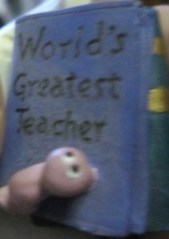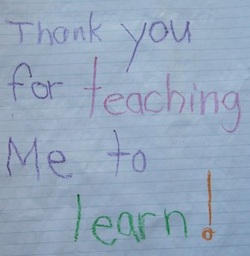
It doesn’t matter what IT is; just bump it up, do it better, be a BETTER you!!!
I know my board, HWDSB, is all over T-LCPs. What the heck does that mean? Is it the same as SMART goals? Luckily, in this technological world, a quick Google search found me all of the information I needed to the billionth degree! So, I used my handy-dandycritical literacy skills to wade through theINFOWHELM, in so doing, taking responsibility for my own professional development.
First, I found (and committed to memory) that T-LCP means Teaching-Learning Critical Pathways. Before I wrote it off as ‘just another of those things that they are making us do,’ I decided to take a look at the actual words to see if I could bring further meaning to the term…
Teaching-Learning recognizes the direct relationship between teaching and learning;
Critical means vital, necessary, analytical, skillful, judgement; and
Pathway indicates that there is an actual, mappable way to get there, i.e., it can be measured.
So, I found myself with an idea of what T-LCPs are all about. It seems we have a new way to think and talk about teaching and learning, and unifying what many teachers are already doing. But what does it look like?
So without any further ado, I present a summary of my research: Teaching-Learning Critical Pathways, in a nutshell…
- PRACTICAL, PRECISE, and highly PERSONALIZED classroom practices = increased ACHIEVEMENT for ALL students (REACH EVERY STUDENT)
- frequent, useful and usable feedback for students (teacher & peer)
- high expectations –> All students CAN learn and all teachers CAN teach to HIGH STANDARDS
- EMBEDDED PROFESSIONAL LEARNING
- small, focused and precise steps
- COLLABORATION allows:
- everyone to be accountable for continuous improvement
- interdependence of curriculum expectations
- assessment OF learning(evidence, e.g., “Bump It Up” walls) and FOR learning (to guide instruction)
- higher-order and CRITICAL THINKING strategies
- reflection
- creation of new knowledge and improved teacher practice
- LEARNING IS SOCIAL… The wisdom of groups helps us to see a bigger picture, ponder questions we have not thought of, and explore possibilities.

Students are propelled into a world of ever-increasing complexity. We have a moral imperative to prepare them to succeed. Most of them will have jobs that don’t even exist yet!! We need to embrace technology, as well as to teach them problem-solving and critical thinking. They require an education that has a solid foundation on basic numeracy and literacy skills, but also supports deep thinking and action, as well as an education that values and understands the human condition. We need to teach them to be responsible, global and digital citizens.

“We must shift our focus from what cannot be controlled; from reasons why things do not work, to what can be controlled; to the reasons why things do work.”- Dr. Asa Hillard
Thus, T-LCPs allow us to shift our focus from figuring out why students do not succeed/achieve, which are just excuses, to looking at why students DO succeed. Every student CAN succeed, so we must adjust the ‘How’.
And, that’s when the FUN begins!
Engagement – Equity – Achievement
It ALL Matters.
March 3, 2011 at 7:33 pm
I enjoyed this post and learned new information. The term 21st century learner is used so loosely that it is hard to figure out a clear definition but I can see how this process could help with the skills I hear associated with this term.
funtasticteachr said:
March 10, 2011 at 5:23 pm
Yes, it is something many boards in Ontario are doing… I think it is good because it is recognizing the “journey”, as well as the End-product. There is a lot of grumbling about it from teachers perceiving it to be extra work, but the good ones are already doing these things anyway.
 RSS Feed
RSS Feed
